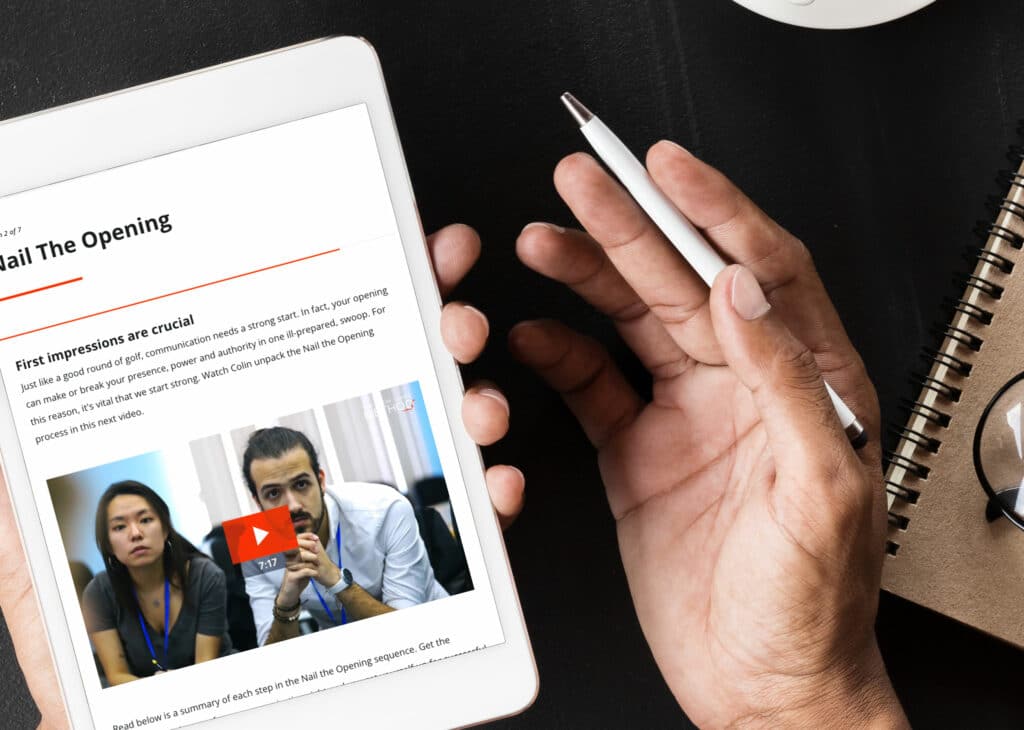There is a lot of talk around customer experience and customer-centric businesses right now.
We’re told that today, 89% of companies compete primarily on the basis of customer experience. But while 80% of companies believe they deliver “super experiences,” only 8% of customers actually agree.
Competition is fierce and people want to connect with brands and businesses that care for their needs and understand their values, rather than just being a number.
Speaking of which – a friend of mine forwarded an email to me the other day that she had received from AMEX. Two emails actually. The first was entitled, “641292620694, are you missing out on points?” Yes, you guessed it: the second was an apology email entitled, “Chris, you’re more to us than a number.” AMEX had made the ultimate customer experience boo boo: communicating with my friend as a data point, rather than as a person.
What is the customer experience and why is it important?
The customer experience is often confused with customer service, user experience and user journey. Personally, I like the simple definition provided by Shippit: the series of interactions and touchpoints a customer has with your brand, and how that journey makes them feel about purchasing from you.
The customer experience is critical today. A Forrester report found that “becoming an experience business” can deliver 1.4x revenue growth, 1.7x customer retention rates, and 1.6x customer lifetime value.
Since 2020 has been hailed as “an exciting year for customer experience,” organisations that are taking a holistic approach to prioritising the customer experience – through reputation-building, customer retention, loyalty and growth strategies – are investing in soft skill development.
Here are 3 reasons why employee soft skills training is critical to creating a ‘customer experience-centred organisation’.
Why employee soft skill development is key to good customer experience
1. Customers want to feel an emotional connection
You would think that customer satisfaction would be enough to foster customer loyalty. Unfortunately today, this isn’t the case. Research shows that out of every 100 customers who churn, 75 say they had been “satisfied or completely satisfied.”
In the digital age, customer satisfaction isn’t enough. According to the NewVoiceMedia’s 2018 “Serial Switchers” report, “Brands are failing to create the positive, emotional experiences that drive customer loyalty.”
Customer engagement is driven by effective communication and interpersonal skills, the ability to be creative and problem-solve, to adapt to any situation and turn it into an opportunity. These are the skills that are lacking in today’s Australian workforce but will dominate the jobs market by 2030 as AI continues to take on more and more technical tasks for us.
In fact, one area in which AI has already taken the reins is customer service. How many chatbots have you conversed with lately? It might be more than you think. And while AI chat services might be saving companies money in personnel, it’s probably losing them customers.
Imagine the power of instilling your workforce with the ability to make customers feel like the most important item on their agenda. Imagine if they could make customers feel heard and appreciated at every touchpoint. Imagine if they had the communication skill to make the people they spoke with, feel emotionally connected to them. Now that’s a good customer experience.
2. A great employee experience leads to good customer experience

It has taken companies a while, but many are starting to realise that a good customer experience begins with a good employee experience. It’s more than a case of, when people feel good, they work well. With the growth of Agile, companies are beginning to understand that company culture and production velocity are inextricably linked.
Customer experience commentator Blake Morgan calls culture “the most overlooked piece of customer experience strategy.” In fact, she also says, “the company of the future has a soul.” It’s being called Capitalism with a conscience. It’s about forming a community and helping the community. It’s about supporting the mental and physical well-being of workers and customers. It’s not about selling, it’s about consulting, giving, assisting people with your products and services.
This sort of corporate culture shift requires an enormous amount of soft skills input. It simply cannot happen without a deep mindset and behavioural shift on the part of each and everyone within the business. You just can’t have a fantastic culture without highly tuned communication and soft skills.
3. Expert communication skills can diffuse a potential viral complaint
Today, there are so many ways for customers to connect. Twitter, Facebook, Snapchat, Instagram and more. And there are some customers who, when they don’t get the service they expect, complain – to the rest of the world on the aforementioned social channels. Look at what happened with United Airlines, which recently lost $1.4 billion in value overnight when a passenger’s experience went viral on social media.
You can’t control when customers complain. However, you can control how you deal with those complaints. Good communication, negotiation and conflict-resolution skills can help you to turn complaints into opportunities – even good PR.
Virgin founder, Richard Branson, gives us a great example of how to do this. A disgruntled passenger on a Virgin Atlantic flight wrote several pages of disappointment at his flight meal selections to the British billionaire. When it was quickly picked up by the media, it could have made the business magnate hot under the collar. However, Branson immediately invited the customer to sit on the tasting panel the next time that Virgin Atlantic reviewed their menu. What a great diplomacy tactic, not only diffusing the situation in the public eye but also making that customer feel personally connected to the brand and the person behind it.
These are just 3 reasons why employee communication skills training should be mission-critical in today’s digital world. Today’s consumers are wise to the scripted answers they’re being given. They have no patience for corporate jargon and meaningless excuses. The days when simple, out of the box ‘product’ style training would suffice are long gone.
Today’s employees must be experts in communication. They need to be crisis consultants, confidants, diplomats and expert negotiators. There’s no room for the “don’t look at me, I just work here” attitude. As a business or team leader, you should know that today’s business landscape requires a deep mindset and behavioural shift in those working in the “frontline” – and even those that aren’t.
If you’re ready to turn your business into a customer-centric loyalty machine, sign up for our corporate communication training program, which can be tailored to your unique business objectives and delivered in a range of formats to fit your company’s size, location and schedules.
The Colin James Method® Facilitators train corporate executives to improve their professional communication skills with a proven methodology. Our highly trained Facilitators and Coaches are recognised for their experience in their fields and have worked with many individuals and organisations around the world to master the art of communication.











